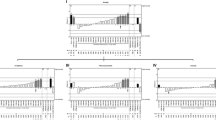Abstract
This study takes the first step toward testing a Y chromosomal effect on both aggression and thermoregulatory nest-building behavior in mouse lines either bidirecrionally selected for short (SAL) and long (LAL) attack latency or high (HIGH) and low (LOW) nest-building behavior. Using reciprocal crosses between SAL and LAL, and between HIGH and LOW, we found no indications for Y chromosomal effects on thermoregulatory nest-building behavior. As for aggression, we confirmed earlier studies on SAL and LAL, i.e., the origin of the Y chromosome influences attack latency, i.e., aggression. However, we did not find indications for a Y chromosomal effect on aggression in the HIGH and LOW lines. Since aggression and nest-building behavior have been shown to be characteristic parameters of two fundamentally different behavioral strategies, the present data underline the improbability of Y chromosomal genes underlying the genetic architecture of alternative behavioral strategies.
Similar content being viewed by others
REFERENCES
Benus, R. F., Bohus, B., Koolhaas, J. M., and van Oortmerssen, G. A. (1991). Heritable variation for aggression as a reflection of individual coping strategies. Experientia 47:1008–1019.
Bohus, B., Benus, R. F., Fokkema, D. S., Koolbaas, J. M., Nyakas, C., van Oortmerssen, G. A., Prins, A. J. A., de Ruiter, A. J. H., Scheurink, A. J. W., and Steffens, A. B. (1987). Neuroendocrine states and behavioral physiological stress responses. In de Kloet, E. R., Wiegant, V. M., and de Wied, D. (eds.), Progress in Brain Research, Vol. 72, Amsterdam, Elsevier, pp. 57–70.
Bult, A., and Lynch, C. B. (1996). Multiple selection responses in house mice bidirectionally selected for thermoregulatory nest-building behavior: Crosses of replicate lines. Behav. Genet. 20:439–446.
Carlier, M., Roubertoux, P. L., Kottler, M. L., and Degrelle, H. (1990). Y chromosome and aggression in strains of laboratory mice. Behav. Genet. 20:137–156.
Carlier, M., Nosten-Bertrand, M. and Michard-Vanhee, C. (1992). Separating genetic effects from maternal environmental effects. In Goldowitz, D., Wahlsten, D., and Wimer, R. (eds.), Techniques for the Genetic Analysis of Brain and Behavior: Focus on the Mouse, Techniques in the Behavioral and Neural Sciences, Vol. 8, Amsterdam, Elsevier, pp. 111–125.
Catlett, R. H. (1961). An evaluation of methods for measuring fighting behavior with special reference to Mus musculus. Anim. Behav. 9:8–10.
Duncan, D. B. (1955). Multiple range and multiple F tests. Biometrics 11:1–42.
Laffan, E. A. (1989). Artificial Selection for Thermoregulatory Nest-Building in the House Mouse: An Analysis of the Lines and Their Limits, Ph.D. thesis, Wesleyan University, Middletown, CT.
Lynch, C. B. (1980). Response to divergent selection for nesting behavior in Mus musculus. Genetics 96:757–765.
Maxson, S. C. (1992). Methodological issues in genetic analyses of an agonistic behavior (offense) in male mice. In Goldowitz, D., Wahlsten, D., and Wimer, R. (eds.), Techniques for the Genetic Analysis of Brain and Behavior: Focus on the Mouse, Techniques in the Behavioral and Neural Sciences, Vol. 8, Amsterdam, Elsevier, pp. 349–373.
Norusis, M. J. (1988). SPSS/PC+ Advanced Statistics V2.0, SPSS Inc.
Selmanoff, M. K., Jumonville, J. E., Maxson, S. G., and Ginsburg, B. E. (1975). Evidence for a Y chromosome contribution to an aggressive phenotype in inbred mice. Nature 253:529–530.
Sluyter, F., Meijeringh, B. J., and van Oortmerssen, G. A. (1993). Response to hCG of two selection lines for attack latency and their reciprocal hybrids. Behav. Genet. 23:566–567 (abstr.).
Sluyter, F., Bult, A., Lynch, C. B., van Oortmerssen, G. A., and Koolhaas, J. M. (1995a). A comparison between house mouse lines selected for attack latency or nestbuilding: Evidence for a genetic basis for alternative behavioral strategies. Behav. Genet. 25:247–252.
Sluyter, F., Meijeringh, B. J., van Oortmerssen, G. A., and Koolhaas, J. M. (1995b). Studies on wild house mice (VIII): Postnatal maternal influences on intermale aggression in reciprocal F1s. Behav. Genet. 25:367–370.
Sluyter, F., van der Vlugt, J. J., Van Oortmerssen, G. A., Koolhaas, J. M., van der Hoeven, F., and de Boer, P. (1996a). Studies on wild house mice (VII): Effects of embryo transfer on aggression. Behav. Genet. 26:513–518.
Sluyter, F., van Oortmerssen, G. A., De Ruiter, A. J. H., and Koolhaas, J. M. (1996b). Aggression in wild house mice current state of affairs. Behav. Genet. 26:489–496.
Sluyter, F., van Oortmerssen, G. A., and Koolhaas, J. M. (1996c). Genetic influences on coping behaviour: effects of the Y chromosome in wild house mouse lines bidirectionally selected for aggression. Behaviour 133:117–128.
van Oortmerssen, G. A., and Bakker, T. C. M. (1981). Artificial selection for short and long attack latencies in wild Mus musculus domesticus, Behav. Genet. 11:115–126.
van Oortmerssen, G. A., Benus, R. F., and Dijk, D. J. (1985). Studies in wild house mice: Genotype-environment interactions for attack latency. Neth. J. Zool. 35:155–169.
van Zegeren, K. (1980). Variation in aggressiveness and the regulation of numbers in house mouse populations. Neth. J. Zool. 30:635–770.
Author information
Authors and Affiliations
Corresponding author
Rights and permissions
About this article
Cite this article
Sluyter, F., Bult, A., Lynch, C.B. et al. No Evidence for a Y Chromosomal Effect on Alternative Behavioral Strategies in Mice. Behav Genet 27, 477–482 (1997). https://doi.org/10.1023/A:1025678517986
Issue Date:
DOI: https://doi.org/10.1023/A:1025678517986




